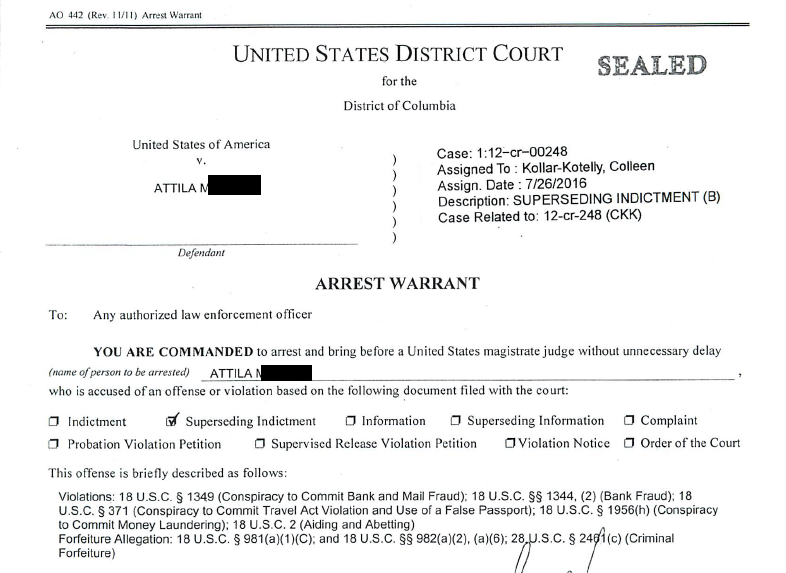The https://english.atlatszo.hu use cookies to track and profile customers such as action tags and pixel tracking on our website to assist our marketing. On our website we use technical, analytical, marketing and preference cookies. These are necessary for our site to work properly and to give us inforamation about how our site is used. See Cookies Policy
U.S. asking for the extradition of six Hungarians in money-laundering case
U.S. authorities are asking their Hungarian counterparts to hand over members of a criminal group to them. The six men are accused of fraud, money-laundering, and forgery of official documents. Hungarian authorities are set to extradite four of them already; however, the final decision will be made by the minister of justice. An attorney representing one of the accused told Atlatszo that this would be the first instance that Hungary extradites people based on these kind of accusations.
In August 2011 the maids cleaning up after their Hungarian guests in a Washington, D.C. hotel found strange objects. The three men must have been in a hurry because they left behind 23 cell phones, various bank statements, ribbons used for keeping dollar bills together and documents relating to a recently incorporated business. Hotel staff notified police who realized the guests were members of an international fraud that led to more than $13 million in losses.

According to Department of Justice documents from March 2017, 19 people were arrested, including eight Hungarians (some of them inside Hungary) and charged with conspiracy to commit bank and mail fraud, conspiracy to commit a travel act violation, and conspiracy to commit money laundering.
The documents published state that the eight men used the Internet to falsely advertise cars for sale that they did not own. Operating out of Europe, the participants marketed the cars on popular websites aiming to attract buyers in the United States. They offered prices that were lower than those offered by legitimate sellers. Prospective buyers were directed to deposit money into fraudulently created bank accounts via wire transfers. The funds were then immediately withdrawn and the expectant buyers never received any vehicles.
The DOJ press statement says that the indictment alleges that the criminal activities took place from November 2010 until April 2013 in the District of Columbia and elsewhere. According to the indictment, the co-conspirators induced at least 170 victims, located primarily in the United States, collectively to transfer at least $4 million to bank accounts controlled by those in the conspiracy, and the co-conspirators were able to withdraw approximately $3.2 million from the fraudulently opened accounts in the United States.
While investigating the fraud schemes and the co-conspirators’ related efforts to launder the fraud proceeds, law enforcement uncovered an unlicensed money transmitting network (“hawala”) operating in the United States, Europe, and Israel.
Fifty-five years instead of twelve?
The U.S. is asking Hungary to extradite six men. If the men accused of these crimes are extradited to the Unites States and they are found guilty, they might as well be sentenced to 55 years in prison. For the same crimes in Hungary, the maximum sentence they could be given is 12 years. According to the Chief Prosecutor’s Office in Budapest, the extradition is legally possible.
The office of the Prosecutor General, the highest such body agrees with that assessment. However, the final decision will be made by the Minister of Justice. The ministry has not replied to our request for comment yet.
Attorney of one of the accused, Antal Dezső told Atlatszo.hu that the extradition request will be a precedent because no extraditions have been made to the U.S. from Hungary in these types of cases. Also, he does not see any guarantee that after the criminal case in the U.S. is over his client will be returned to Hungary to serve his sentence.
Written by Brigitta Csikász and Antónia Rádi
The Hungarian version of this story is available here.
[sharedcontent slug=”hirdetes-english”]
Share:
Your support matters. Your donation helps us to uncover the truth.
- PayPal
- Bank transfer
- Patreon
- Benevity
Support our work with a PayPal donation to the Átlátszónet Foundation! Thank you.
Support our work by bank transfer to the account of the Átlátszónet Foundation. Please add in the comments: “Donation”
Beneficiary: Átlátszónet Alapítvány, bank name and address: Raiffeisen Bank, H-1054 Budapest, Akadémia utca 6.
EUR: IBAN HU36 1201 1265 0142 5189 0040 0002
USD: IBAN HU36 1201 1265 0142 5189 0050 0009
HUF: IBAN HU78 1201 1265 0142 5189 0030 0005
SWIFT: UBRTHUHB
Be a follower on Patreon
Support us on Benevity!
